Cool as a cucumber is the taste of summer.
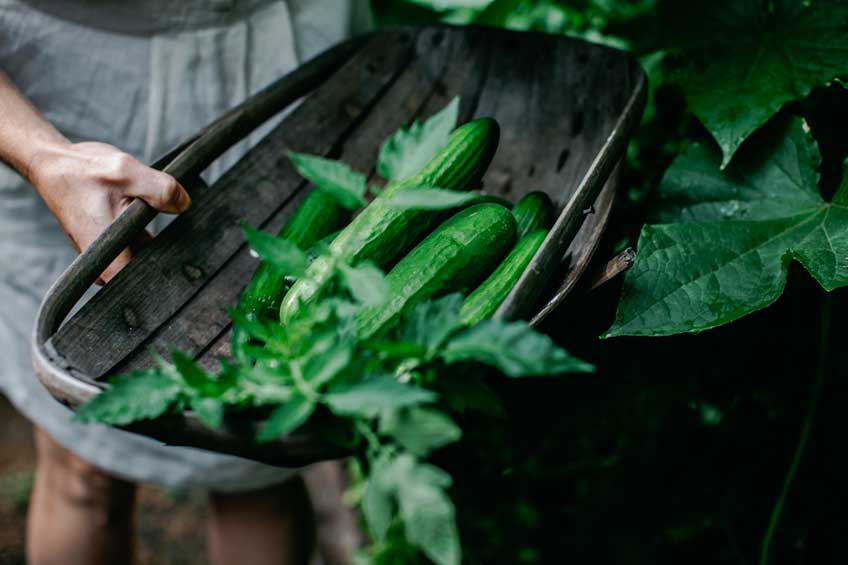
Cucumbers have been cultivated for centuries, with records dating back to 2000 BC in Mesopotamia. Closer to home, cucumbers have been in Australian gardens
since the late 18th century, first grown in Sydney by the Reverend Richard Johnson, who sailed with the First Fleet.
Growing
Plant seedlings at this time of year. Select a position with well-drained soil which receives sun for most of the day. They do well in the shade of corn
or sunflowers, and also grow well with beans and tomatoes. Enrich the soil two weeks before planting by digging in manure, blood and bone and well-aged
compost.
Provide some kind of support to keep the fruit off the ground. Though they can be grown horizontally as a ground cover, we think the best results are when
they are grown vertically as a climber, which reduces the risk of fungal infections and encourages straighter fruit. We like to grow them over an arched
walkway made from bent bamboo and rolls of lightweight wire. If you are growing in a raised garden bed or Vegepod, plant your cucumbers on the edge
so they can trail down the sides.
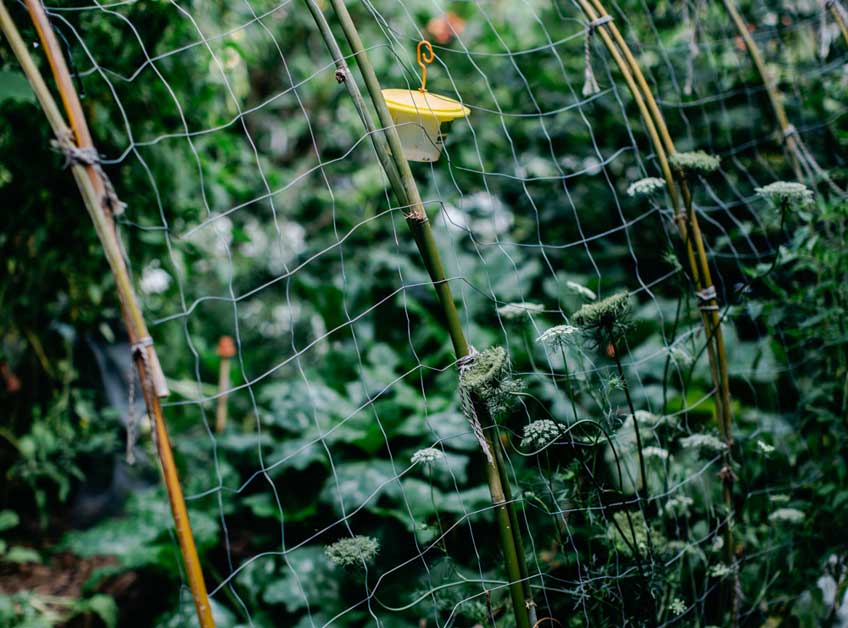
Flowering
Flowers closely resemble those of pumpkin and zucchini, with both male and female flowers. Identify the female flowers by the swollen ovary at the base
of the bloom. Encourage bees to visit and pollinate the female flowers to ensure the development of fruit. Borage will do the trick!
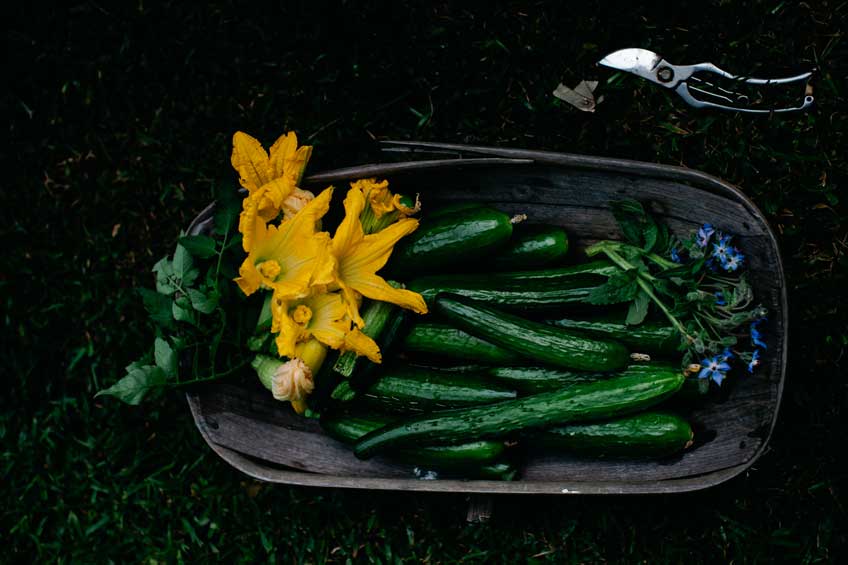
Caring
Once each plant gets to the top of the support structure, pinch out the growing tips to encourage branching. Cucumbers will thrive in warm weather, and
they will need plenty of food and regular drinks to keep them going. Dress the soil with a good controlled release fertiliser such as Rooster Booster
and apply a liquid fertiliser like Harvest or Potash every few weeks to ensure maximum yield. Your plants will be growing so vigorously they may need
some help using the provided support. Lift any scrambling vines and guide them up on to the structure.
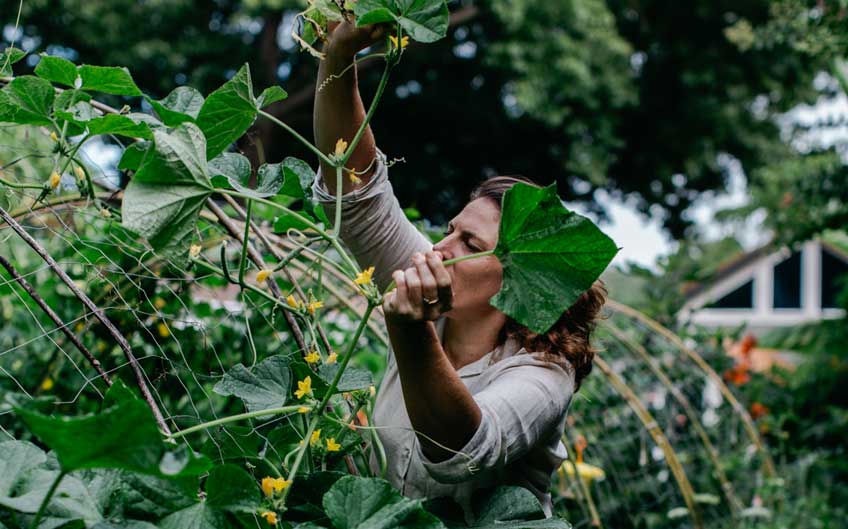
Harvest
Pick your cucumbers as soon as they are ripe, usually around 15-20cm long depending on the variety. Picking will encourage the plant to produce new fruit.
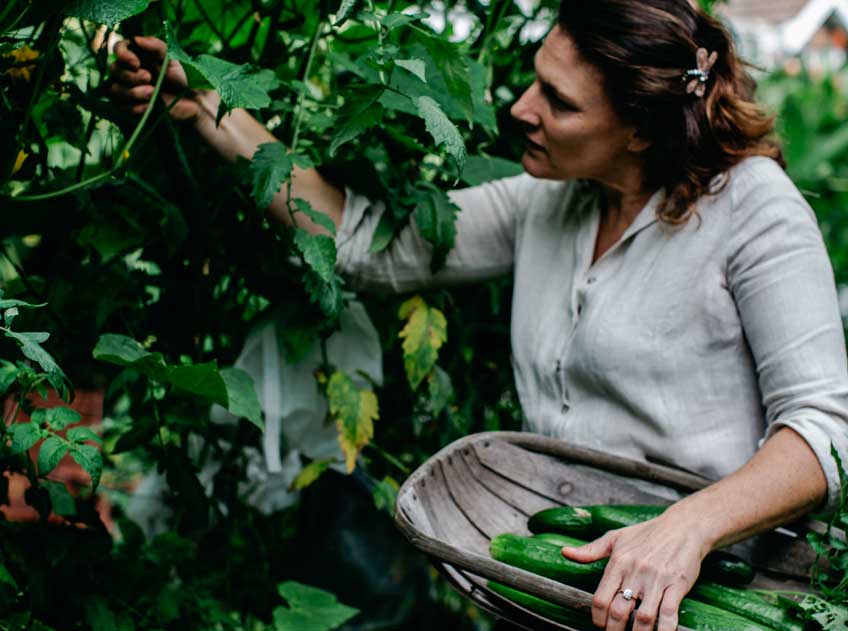
Varieties
'White Spine' - oblong fruit with smooth white skin and good flavour.
'Long White' - white fruit to 18cm in length, non-acidic.
'Lebanese' - common supermarket variety, quality fruit and very productive.
'Double Yield' - can produce more than 17kg per plant!
'German Pickling' - harvested young for pickling, or at 20cm to eat fresh.
'Crystal Apple' - compact plant with cream-coloured, apple-shaped fruit
'Mini White' - abundantwhite, 10cm fruit.
'Space Master' - compact, won't take over the garden!
Pests and Diseases
Aphids, whitefly and red spider mite can be prevented by spraying eco-oil. Set beer traps to catch pesky slugs and snails. Protect against leaf fungal
diseases such as powdery mildew by spraying with eco-fungicide.
Photo credit: Luisa Brimble